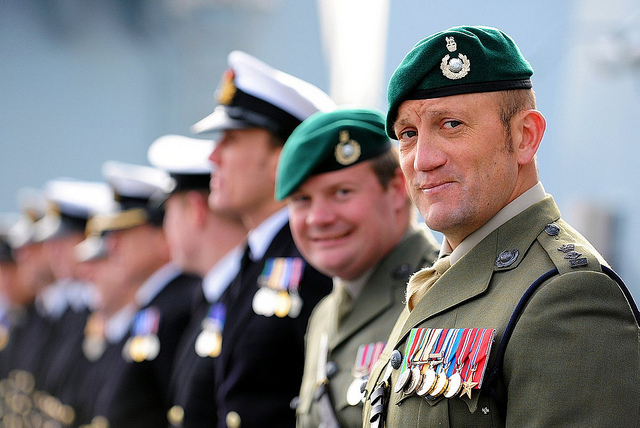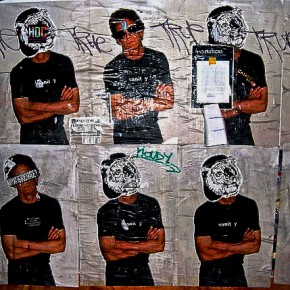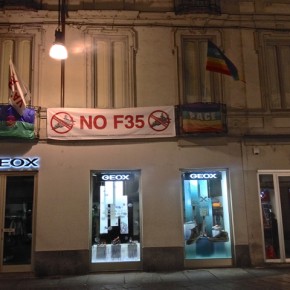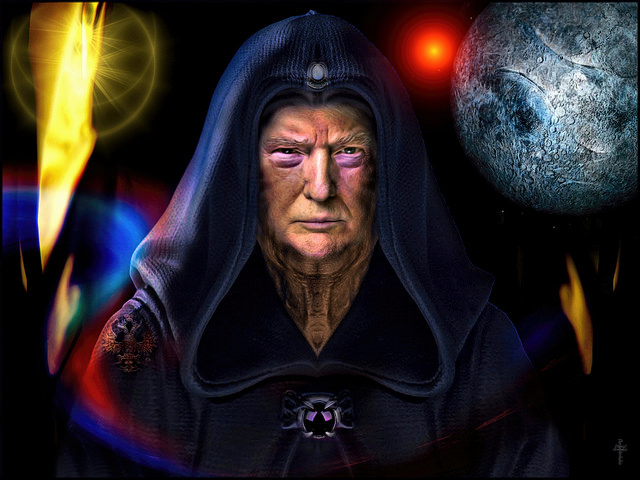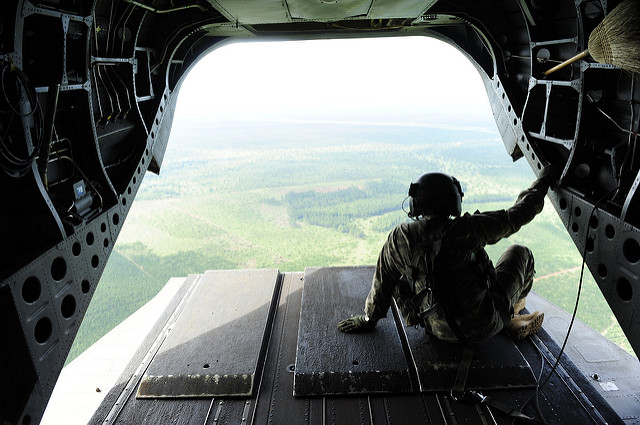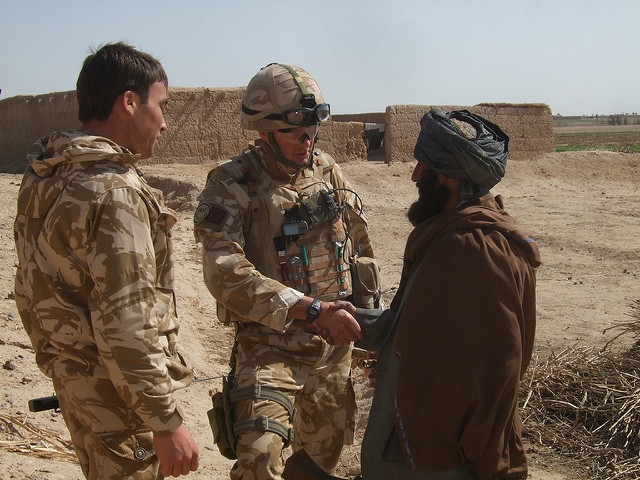It was as good as Daily Mail headlines get. “The Guardian has handed a gift to terrorists.” Paraphrasing a speech by new MI5 Chief Andrew Parker, in which the top spy took aim at the paper for publishing Edward Snowden’s leaks, the catchy language, though designed to pimp newsprint, testified to the gravity of Britain’s GCHQ crisis.
Have no illusions. It’s a blame game, without a doubt. But, at the risk of saying that responsibility is largely irrelevant, the bigger question being asked is about the ways in which institutions charged with securing the realm shape our politics. Do they play an inordinate role?
The official line goes that in the UK, or in any other democracy, the military operates at the direction of civilian government, and the army has no politics of its own. Security officials advises the politician on manly, martial things but ultimately defers to him. That’s what’s supposed to happen. Right?
Broadly speaking, yes. Generals and politicians are on the same page (and from more or less the same social class.) The general wants his war almost as badly as the politician wants to butch up by starting one. How else does an honest chap tee-up his peerage and substantial book advance? However, the issue is nuanced. The army and the government do not exist in what can precisely be called a state of harmony, and the professional military has pursued its own interests since its inception.
The modern British military does an excellent job of concealing its own querulous origins. Its ancestor, the New Model Army, was marinated in dissent and argument, brimmed with political and religious radicalism and forged in the regicidal revolution we refer to as the English Civil War.
The officer class particularly (and the army as a whole) have at times been treated with deep suspicion by the very class of men they brought to power. In the 1800s, against the background of war and revolution in France, military men were seen as potential agents of rebellion.
The British military itself was kept scattered in barracks at home or posted to faraway colonies for large parts of its history. Indeed the British army’s formative years were more Indian than English.
Today’s military leaders, however, are a blander product of centuries of bourgeois society and as such are less much exciting than their rebellious forebears. Mavericks have no place among in higher commands and they are frustrated early and filtered out. That our generals have repeatedly proven willing to go along with the maddest of wars seems to suggest they are rather content as lackeys.

Barring the odd outburst by a senior officer on cuts, morale or equipment, today’s British military is more or less subservient to parliament. But within that limited framework, it’s a serious political beast inside and out, and seeks to influence politics wherever it can.
Internally, the army, navy and air force spend a good portion of their time trying to outsmart each other in an effort to win political influence and thus funding. The extent of inter-service wrangling is documented with wit and aplomb by former military officer Lewis Page, in his justly-titled book, Lions, Donkeys and Dinosaurs.
The air force, for example, is not happy that the army has Apache helicopters. With grubby, land-based counter-insurgencies very much in fashion, the Royal Navy seems to have pinned its hopes on the much-discussed ‘pivot to Asia’ as western militaries begin to scaremonger with regards to a rising China. The whole thing plays out as a militaristic, multi-billion pound parody of a controversy between toy-coveting man children.
As an institution in public life, the military exerts great influence through its very sophisticated media operation. Psychological operations, you see, are not limited to the enemy. Like the late Colonel Gaddafi, the military has a “little green book” of its very own.
The military also has massive spending power. My own former military tribe, the Royal Logistic Corps, concerned with the army’s material requirements, was at one time accounted amongst the largest business concerns in the country.
The military’s close ties with the UK arms trade – heavily subsidised with public money – are also politically charged. At the UK’s annual DSEI arms fair senior soldiers, sailors and airmen rub shoulders with arms dealers and delegations sent by interested despots and dictators. No doubt it’s all very jolly, but it cannot be held to be taking place in a political vacuum.
In a similar vein, a Royal Navy vessel recently served as a kind of maritime showroom for BAE Systems hardware during a trip to war-torn Libya. The 2008 Recognition Of Our Armed Forces In Society report sets out how the military can better influence corporate power. Long lunches and half-day seminars with senior military officers are the order of the day.
The idea that the military, any more than the intelligence community, is non-political, is flawed. As well as its pursuing its own agenda (or agendas,) the army does a political role in a political context to achieve political aims. In the words of former British military commander General Sir Rupert Smith, armed force has two functions: it kills people and destroys things, and it does these things for political aims.
As in the case of GCHQ, the assumption that powerful agencies concerned with activities like killing or spying are hounds stirred only by their master’s call hinges on a optimistic, even flowery, assumption that powerful men who, in the case of the military, have a lot of guns, tend towards political neutrality.
Photographs courtesy of UK Ministry of Defence and Number Ten
